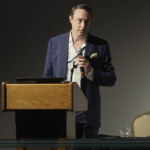
by ADERAYO SANUSI, Princeton University
Book Review:
What Do Science, Technology, and Innovation Mean from Africa?
Edited by Clapperton Chakanetsa Mavhunga
256 pp, MIT Press
"Imagine a positive Africa—creative, technological, and scientific in its own way." (1)
Several countries in Africa are in a critical period of expanding tech entrepreneurship and foreign investment. Innovation hubs are proliferating, following decades of rapid local adoption of mobile phones and digital platforms. And in the past three years, top Silicon Valley executives like Zuckerberg, Sundar Pichai, and Jack Dorsey have visited the continent to meet emergent developer communities and learn about new products and ventures.
As these developments are documented on various media platforms and business school case books, an emerging group of scholars, practitioners, and activists have begun to critique what they characterize as incorrect, harmful discourses about the technological contributions of Africans. They are typically represented merely...


